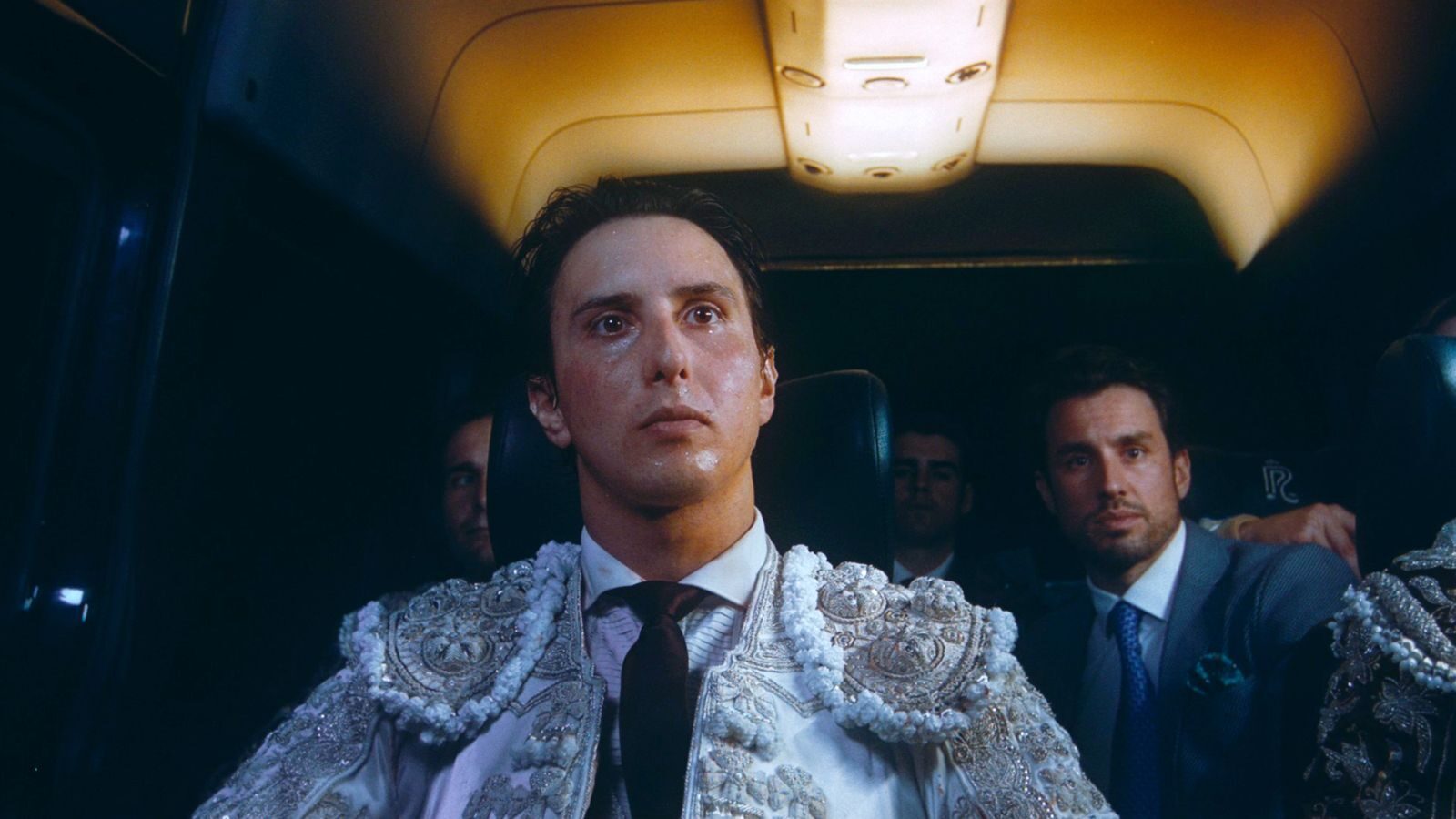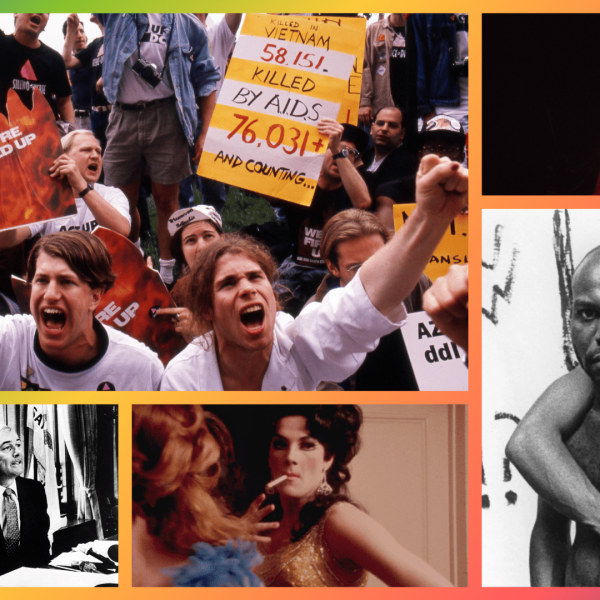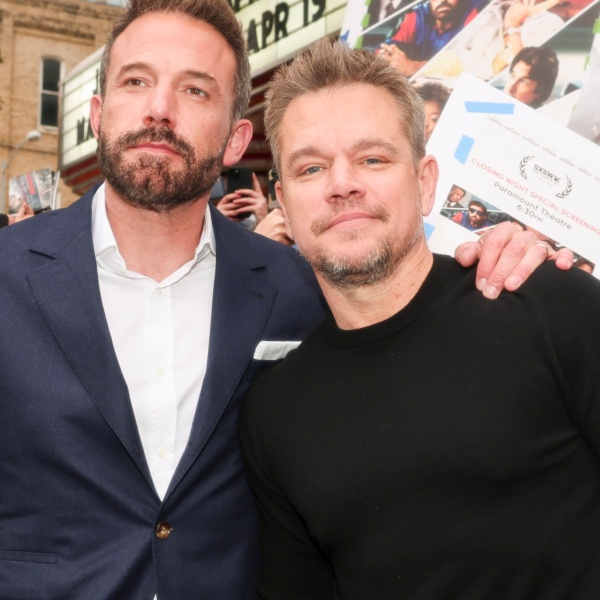Despite a welcome East Side renaissance in repertory screenings, genre fests, and classical retrospectives, Los Angeles as a sprawling industry town needs a banner festival where undiscovered gems, glitzy red carpet premieres, and especially international fare can earn equal ovation. Only AFI Fest, even if scaled down from the previous decade, fits the bill.
The festival’s full-time programming team travels year-long to festivals such as the Berlinale, Cannes, and TIFF to scout the finest work, and the weighty influence of the American Film Institute ensures the glamour and the gravitas. This year, the Angelina Jolie-starrer “Maria,” the world premiere of the latest Clint Eastwood movie, “Juror #2,” and the opening night documentary tribute “Music by John Williams” are all on-brand selections. Robert Zemeckis will be in conversation with Tom Hanks following the sold-out premiere of their latest collaboration, “Here.”
Premiering in L.A. are several titles submitted by their countries of production for the Oscars; the 2024 edition has nine, including Mati Diop’s “Dahomey” (Senegal), Sandhya Suri’s “Santosh” (UK), and Mohammad Rasoulof’s “The Seed of the Sacred Fig” (Germany). Some much-anticipated films were not submitted by any country (looking at you, India), but cineastes needn’t worry, for Payal Kapadia’s Cannes Grand Prix winner “All We Imagine as Light” will have two screenings at the festival, even though Kapadia herself is not expected to attend.
However, nearly four dozen other film teams will be on-site for post-screening Q&As, so the Hollywood/Highland complex (which also hosts the Academy Awards) will be abuzz as usual with diverse global talent.
IndieWire spoke to the festival’s entire curatorial team — seven feature programmers, and four shorts programmers — about their favorite under-the-radar titles, elaborated below in their respective sections. Plus, IndieWire includes three staff picks.

“Afternoons of Solitude”
Section: Luminaries
Recommended by Malin Kan, Senior Programmer
“I truly couldn’t comprehend why anyone would choose to watch bullfighting, a horrendously violent, primitive and barbaric form of entertainment,” exclaims AFI Fest Senior Programmer Malin Kan, “and then I watched two hours of it, completely rapt.” Director Albert Serra (“Pacifiction,” “Liberté”) “is known to perform an astonishing kind of alchemy, transforming the horrific and the perverse into something mesmerizingly beautiful and charged with symbolism,” said Kan, and with “Afternoons of Solitude,” the Catalan filmmaker enters the arena with established bullfighter Andrés Roca Rey “to construct a documentary portrait teeming with confrontations.”
While Kan believes “the ever-present threat of a violent public death transforms seemingly even mundane footage into the highest form of drama,” Serra said in a recent interview that he finds the beauty in bullfighting, which has recently been banned in some parts of Spain, and his point of view “to be an anthropological one.” Since “Solitude” is a documentary, Serra admits you can’t control how the subject (Rey) or the bull behaves, so he “chose a subject that’s already very dramatic” and stayed patient. “People are more interested in being themselves.”

“Architecton”
Section: Documentary
Recommended by: Javier Chavez, Associate Programmer
“I know what you’re thinking: a film about rocks?” said AFI Fest Associate Programmer Javier Chavez knowingly, since some folks might have had a similar incredulous reaction to the subject of Russian documentarian Victor Kossakovsky’s previous work, “Gunda,” which drops us right into a sty with a pig, into the creature’s own pace of life, producing “more experience than movie.” But Chavez insists that the director’s “latest elemental elegy is about so much more, namely our oft-destructive shaping of the world and how we can live more harmoniously in it.”
Kossakovsky, in the film’s notes, reiterates this sentiment by summoning Tolstoy, who cautioned that if humanity doesn’t accept that we are not the only life that exists, “we’ll be stuck in the same cycle of war and peace.” Influenced by the Russian invasion of Ukraine, Kossakovsky sought beyond the film’s title, which means “architect of architects,” and shot in ancient ruins, destroyed Ukrainian cities, and a devastated post-earthquake zone in Turkey. So even as the film is, per Chavez, “a gorgeous feat of widescreen photography with transfixing audio design… cinema distilled into its purest form,” it still trembles with undercurrents of doom.

“Cheech & Chong’s Last Movie”
Section: Documentary
Recommended by: Todd Hitchcock, AFI Fest Director
“Long before Seth Rogen was born, Cheech and Chong were the hardest-working potheads in Hollywood,” said Vikram Murthi in his IndieWire review of David Bushell’s new documentary chronicling the duo’s meteoric rise in the 1970s. The film brings back Cheech Marin, age 78, and Tommy Chong, age 86, on screen — nostalgic banter, resentments, and all.
“There’s so much more to the story of the famous stoner comedy duo than even longtime fans may be aware,” said Todd Hitchcock, director of AFI Fest, citing the film’s exploration of Chong’s pre-comedy career as an R&B guitarist and songwriter, and Cheech’s experiences protesting the Vietnam War while a student at what is now Cal State Northridge.
Murthi, enjoying the duo’s re-litigation of decades-old arguments as they drive through the California desert, wrote, “Even in their autumn years, they often can’t or won’t perceive how the other feels about certain events, and it’s telling the two never abandon their positions even when they agree to let it go.” Hitchcock, for his part, finds it “fascinating to watch the two men have sometimes difficult conversations,” and crucially, how Bushell “allows the viewer to see each person apart from his comedy persona.”

“Color Book”
Section: Discovery
Recommended by: Julia Kipnis, Associate Programmer
When David Fortune won a million dollars for his project “Color Book” from the coveted AT&T Untold Stories program in mid-2023, he was also guaranteed a spot to screen the feature at the 2024 Tribeca Film Festival. Due to the WGA and SAG strikes, he couldn’t start filming until this past January. So it’s all the more impressive that for his debut feature, Fortune has crafted what AFI Fest associate programer Julia Kipnis calls “an emotionally rich, tender portrait of a devoted single father, Lucky, and the unwavering love he has for his son, Mason, following the sudden death of his wife.”
Kipnis enjoys how the film’s potent black-and-white cinematography is not only a clever inverse of its title but allows “Color Book” to “fully immerse viewers in the father-son’s elaborate journey to Mason’s first-ever Braves game at Truist Park.” She also admires “the generous soul of Atlanta’s communities on full display” as well as Jeremiah Daniels’ “standout performance” as baseball-loving Mason who has Down syndrome. Fortune spent a lot of time listening to parents of kids with Down syndrome to ensure he did justice to voicing the differently abled. It’s only fitting that this Loyola Marymount graduate has his LA homecoming at AFI Fest.

“Hanami”
Section: Discovery
Recommended by: Anna Li, Associate Programmer
Said AFI Fest Associate Programmer Anna Li of Cape Verdean filmmaker Denise Fernandes’ breakout Locarno premiere, “This might just be the most exciting discovery for me this year. As an immigrant myself, I was immediately captivated by a film that dares to eschew the dreams of a foreign land but rather ask the question, ‘What if we stayed?’”
The question is similar to the one posed by another West African feature, Mati Diop’s “Atlantics.” Fernandes’ answer results in a film of a somewhat different tone that Li describes as “a lyrical rumination on familial and geographical longing and belonging, and on the poetic contradictions between a mother who leaves and a daughter who stays.”
In the director’s note on the film, Fernandes wrote, “Growing up in Europe, I noticed that Cape Verde was often omitted from world maps and globes because of its small size. As one way to make it visible, I made Cape Verde and its people the central theme of my first feature.”
“Through her lens,” said Li, “and the eyes of our protagonist Nana, set against black sand beaches and peculiar volcanic rock formations, home is a beautiful place.”

“Hard Truths”
Section: Luminaries
IndieWire Staff Pick
Marianne Jean-Baptise. Marianne Jean-Baptise. Marianne Jean-Baptise. You can utter the name of this actor through eternal time, and it wouldn’t count as hyperbole once you absorb her furnace blast of a performance in Mike Leigh’s first film in six years, which premiered in Toronto to a rapturous standing ovation. Reteaming with Leigh nearly three decades after “Secrets and Lies” earned her an Oscar nomination, Baptiste collapses into the exhaustion her character Pansy, the formidable matriarch of a middle-class British Jamaican family, has internalized over the years, except that she still erupts every day at anyone — which is everyone — who annoys and offends her.
In both collaborations with Leigh, Baptiste’s characters wrestle with an unexpressed relationship with their mothers, one not yet found, the other passed. David Ehrlich, in his review, compared Pansy to another Leigh character, the perennially sunny Poppy, played by Sally Hawkins in “Happy-Go-Lucky.” He said “the existence of one implies the existence of the other. They will never cross paths, but if they did I suspect that it would result in an apocalyptic collision of psychic distress.”
Run to the screening for Baptiste’s unexpectedly wicked-funny performance that in a just awards season should win her gold, but rest to ponder how the collisions Pansy engenders — and represses — point to a grief that dips beyond the familial into the intergenerational and perhaps even the systemic.

“The Human Hibernation”
Section: Discovery
Recommended by: Josh Gardner, Associate Programmer
Of Catalan artist Anna Cornudella’s audacious debut feature — in which she boldly imagines what the world might look like if humans hibernated every winter — AFI Associate Programmer Josh Gardner said, “Its indelible images have buried themselves deep in my brain, and I haven’t been able to stop thinking about this incredibly special film since its premiere at the boundary-pushing Forum section of the Berlin International Film Festival earlier this year.”
Gardner traces influences of the metaphysical mysticism of Apichatpong Weerasethakul and the surrealism of David Lynch, yet he finds that Cornudella has crafted “something wholly original, featuring endlessly mesmerizing tableaus that break down the barriers between the human and natural worlds.” In her director’s note, Cornudella states that she wanted to “reflect on the role of animals” and highlight the consequences of anthropocentrism, so she was inspired by thinkers such as ecofeminist Donna Haraway, anthropologist Anna Tsing, and video artist Polina Kanis, making this feature a discovery of genuine cross-disciplinary origins.

“Misericordia”
Section: World Cinema
IndieWire Staff Pick
As IndieWire’s Ryan Lattanzio wrote at Cannes, “Alain Guiraudie is back at Cannes with a bittersweet and unexpectedly warmhearted dark comedy about latent homosexual desire, ‘Miséricorde’ [‘Misericordia’]. Remember, the French writer/director is the filmmaker behind the 2013 perverse gay classic ‘Stranger by the Lake,’ a simmering and sinister cruising tale about how our drives toward death and sex are of the same flesh. ‘Miséricorde,’ debuting in the Cannes Premiere section, is a decidedly lighter-on-its-feet (in all senses of the idiom) story of a lonely and faithless man’s obsession with his dead former boss, who’s also the father of the childhood best friend he maybe once loved.
“When Jérémie (Félix Kysyl) returns to Saint-Martial, a provincial village nestled in a wood in Southern France, he immediately bonds with his former boss’ widow, Martine (Catherine Frot). Is it romantic obsession, or projecting a mother figure upon her? Or is Jérémie really in love with her dead husband, and so she’s now the replacement? Guiraudie’s film asks complex questions about the natures of desire, internalized homophobia, and the ways in which we cast the moldings of parental figures onto strangers when we’re so very alone ourselves.”

“Nickel Boys”
Section: Special Screenings
IndieWire Staff Pick
Such is the shock in experiencing the deployment of the first person point of view in RaMell Ross’s adaptation of Colson Whitehead’s novel “Nickel Boys” that David Ehrlich, in his IndieWire review, suggests that “Ross’s aesthetic is as radical as Whitehead’s reimagining of the Underground Railroad as an actual train line… Ross [in collaboration with cinematographer Jomo Frays] has devised an astoundingly effective way to express the relationship between how we see things and what we glean from them. The result is a staggeringly beautiful reminder that America’s most enduring narratives are only subject to change when people are invited to look at them in a different light.”
Formal reinvention is what was demanded of a script that many in Hollywood deemed “unfilmable.” Set in 1962 in a barbaric reform school inspired by Florida’s notorious Dozier School for Boys, the film follows the friendship of two boys, Elwood (Ethan Herisse) and Turner (Brandon Wilson), as they survive and dream. The “following” in “Nickel Boys” upends what we’re accustomed to as cinema spectators, because, as Ehrlich argues, “switching back and forth between Elwood and Turner’s perspectives constantly forces us to scan the frame for context clues as to which character we’re “with” at that moment.”
The reward of learning this new cinematic grammar is the possibility of catching the “thousand stories” that Ross attempts to conjure with each image.

“Teaches of Peaches”
Section: Documentary
Recommended by: Abbie Algar, Director of AFI Programming
Winner of the Teddy Award for Best Documentary at this year’s Berlinale. The legendary career of Canadian electroclash musician and queer icon Peaches (née Merrill Nisker) is showcased in what AFI director of programming Abbie Algar describes as an “appropriately unconventional portrait that dives into the multihyphenate’s 30+ years as a fearless cultural disruptor and innovator.”
In their note, director Philipp Fussenegger and editor Judy Landkammer said their “biggest challenge was to create neither a classic tour film nor a classic biography, but a parallel narrative without becoming nostalgic.” Algar believes the filmmakers clearly succeed, praising how they “refuse to stick to the rules, deftly intercutting scenes from Peaches’ anniversary tour with archival material from two decades of wild performances. What emerges is a supremely inspirational look at a true rockstar who is still thrilling crowds well into her 50s.”

“To a Land Unknown”
Section: Discovery
IndieWire Staff Pick
Last decade, it was the Syrian refugee crisis that prompted movies such as “Sky and Ground” and “The Swimmers” about urgent migrations to Germany. This year, it’s the ongoing genocide in Gaza that forms the context of two films at AFI Fest: Documentary “No Other Land,” a “harrowing and unforgettable portrait of endurance”; and Dubai-born Palestinian-Danish filmmaker Mahdi Fleifel’s narrative feature debut “To A Land Unknown,” which bowed at Cannes’ Directors’ Fortnight and is an eight nation co-production.
In her review of the latter, Sophie Monks Kaufman calls the Athens-set heist thriller about two Palestinian cousins eager to get to Germany a “tour-de-force of empathic storytelling.” “Why Germany is supposed to be a promised land is a moot point,” she argues. “The audience is in on the suspicion that the problems here will likely exist there, and the dramatic irony is amped up in this particular context, as Germany has been draconian in clamping down on Palestine solidarity.” So even as the cousins are forced to hatch a criminal plan to procure fake passports, the stakes as we watch their shenanigans unfold feel higher, as the film remains in “constant negotiation with how much suffering we can mete out and take in before our soul collapses.”
The Best Shorts at AFI Fest 2024
Recommended by: AFI Fest’s short film programming team
“Christmas, Every Day”
Nichole Young, associate programmer, finds Faye Tsakas’ new documentary “intoxicating.”
“Two People Exchanging Saliva”
Daniel Crooke, associate programmer, loves this “absurdist romantic tragedy comedy.”
“Hush, My Dear”
Payton Ewalt, associate programmer, recommends this drama about a mother defending her son from a playground bully.
“Kowloon!”
Eli Prysant, assistant programmer, raves about this documentary about a 1200-seat pan-Asian restaurant in Massachusetts.
AFI Fest 2024 runs from October 23-27 in Hollywood, Los Angeles.






